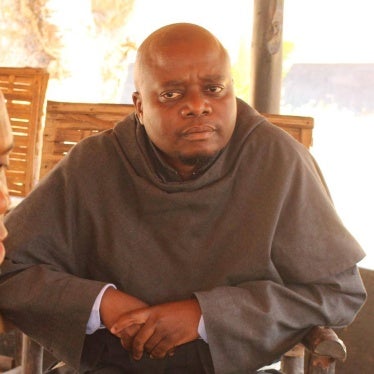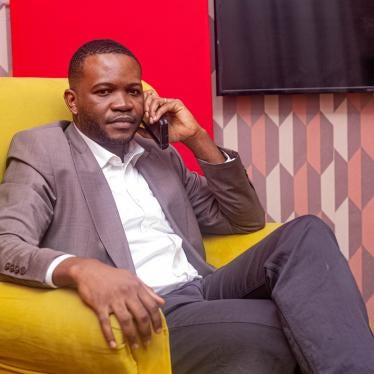Angola’s government claims that it respects free speech and the right to protest – and it went on the record as such during last week’s United Nations review of its human rights record. But the reality on the ground couldn’t be more different.
Specifically, Angolan Minister of Justice and Human Rights Rui Mangueira claimed Angola is upholding the laws guaranteeing freedom of expression, assembly, and the press. He stated the government has not closed any media outlet nor imprisoned any journalist.
However, most privately owned newspapers and radio and television stations are owned by the ruling party or government officials, and they are virtual government mouthpieces, often presenting the same viewpoints as the state media. As a result, blogs and social media have become the most important channels to voice criticism of the government.
Government officials have also used criminal defamation laws against independent journalists who have exposed corruption and human rights abuses.
It’s not just free speech that’s under attack. Mangueira also denied that the police have cracked down on peaceful protests, claiming the police only intervened when protests became violent.
But as recently as October 11, the police arrested at least 12 youth protesters in Luanda. Several were injured when police beat them with metal bars and batons while in their cells, in a school, and in a football stadium. Most protesters were released that day without charge. One protester received a 30-day sentence for allegedly having torn the uniform of a police agent, and five more were held for nearly two weeks before being released pending their trial on disobedience charges. They were denied access to lawyers until five days after their arrest, and they were denied medical care.
Two protest activists – Isaías Cassule and António Alves Kamulingue – were forcibly disappeared and killed in May 2012. Seven police officers and intelligence agents have been charged with the crime. The trial, which started on September 1, 2014, was suspended after a week when the court declared itself incompetent to proceed against one of the intelligence officials, whom President José Eduardo Dos Santos had promoted to general after his arrest. The official has since been demoted, yet it remains unclear when the trial will resume.
Youth groups are planning a protest for November 23 to call for justice for Manuel Carvalho Ganga, an opposition activist who was killed by a presidential guard one year earlier – the night before a protest for which he distributed posters. The guard has been charged with his death, but he has still not been arrested.
The UN Human Rights Council’s Universal Periodic Review process is designed to have reviewed governments adopt and implement the council’s concrete recommendations. But Angola’s denials of its repressive tactics call into question its willingness to adhere to the process.







